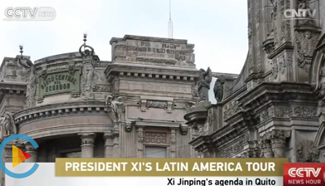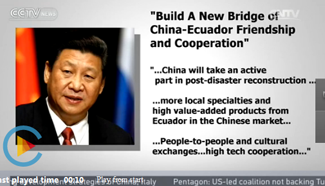WUZHEN, Zhejiang Province, Nov. 17 (Xinhua) -- CEO of Tencent Pony Ma on Thursday explained the difficulty in expanding Wechat overseas.
"It is very hard for Wechat to expand overseas, unless we can offer wholly different customer experience, but social apps are basically all alike," Ma told a forum at the third World Internet Conference in east China's Zhejiang Province. "In markets dominated by WhatsApp or Line, we can't challenge them."
WhatsApp is the world's most popular instant messenger, with close to a billion active users. WeChat lags behind with around 650 million users, mostly in China.
Tencent, possibly China's premier Internet company, rose to prominence with a messaging service called QQ in the late 1990s and came to dominate China's social networking market with WeChat a decade later, just as mobile Internet took off. China has around 700 million Internet users, most of whom use smartphones.
WeChat has gained a foothold in some overseas markets. It has become the messaging app of choice in Malaysia, but elsewhere users are mainly ethnic Chinese.
The spread of WeChat usually begins in the overseas Chinese community and spreads to friends and colleagues, Ma said.
Last year, on a visit to University of Washington where there are 7,000 Chinese among nearly 40,000 students, Ma found many foreigners, not least the university president, using WeChat. Off campus, WeChat is less popular because the Chinese population is low.
Ma remains interested in expanding overseas and expects Tencent to achieve some success in fields other than social networking, like gaming, payments and Internet of Things.
In China, WeChat is much more than a messaging app. People use it as a tool kit to shop both on and offline, buy air and train tickets, hail taxis, read the news, pay bills, book accommodation, and many other services.










